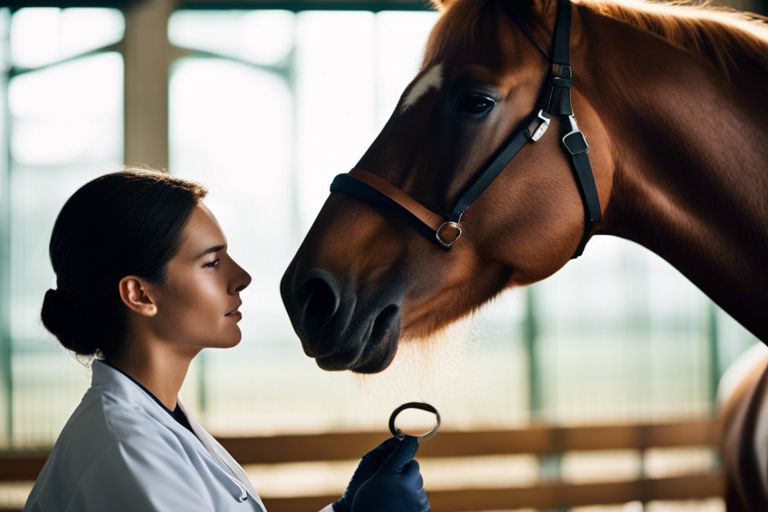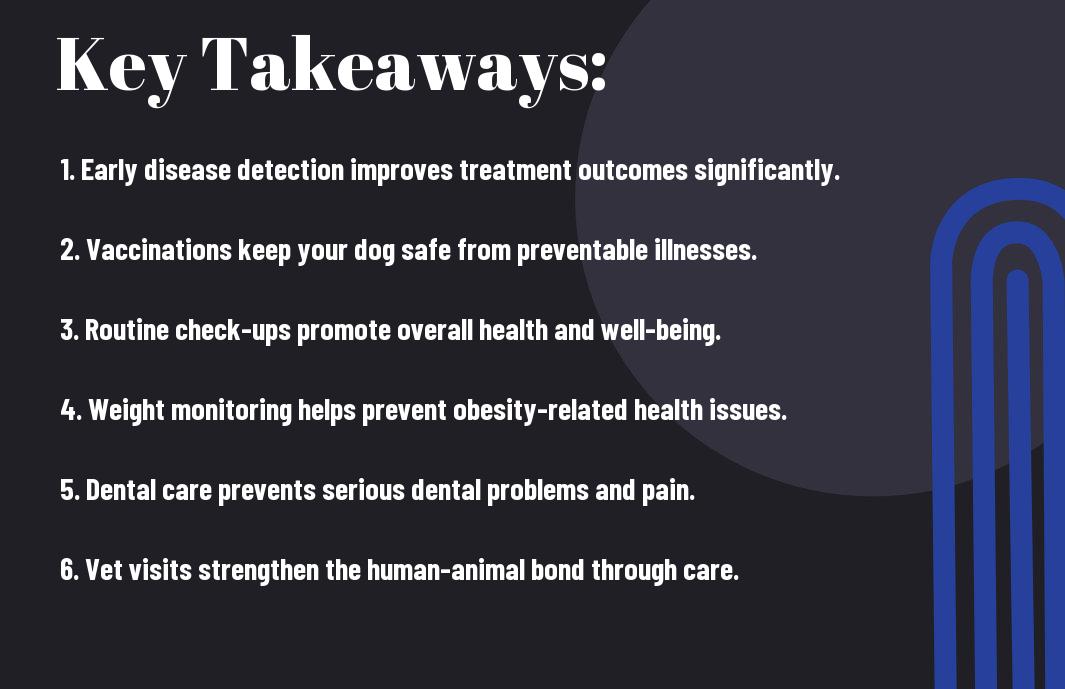Wellness is crucial for your equine companions, and regular vet check-ups play a vital role in ensuring their health and well-being. Just like you visit your doctor for routine check-ups, your horses also need preventive care to catch any issues early on. These check-ups help in detecting and treating potential health problems before they escalate into serious issues. By prioritizing regular vet visits, you are proactively safeguarding the health of your beloved horses.
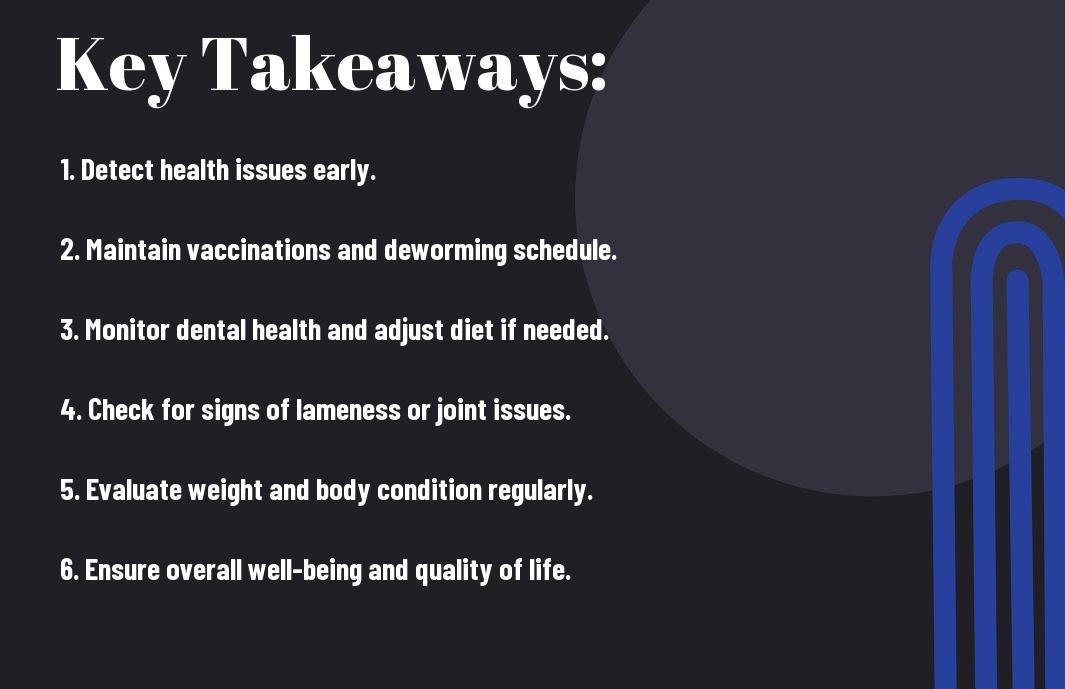
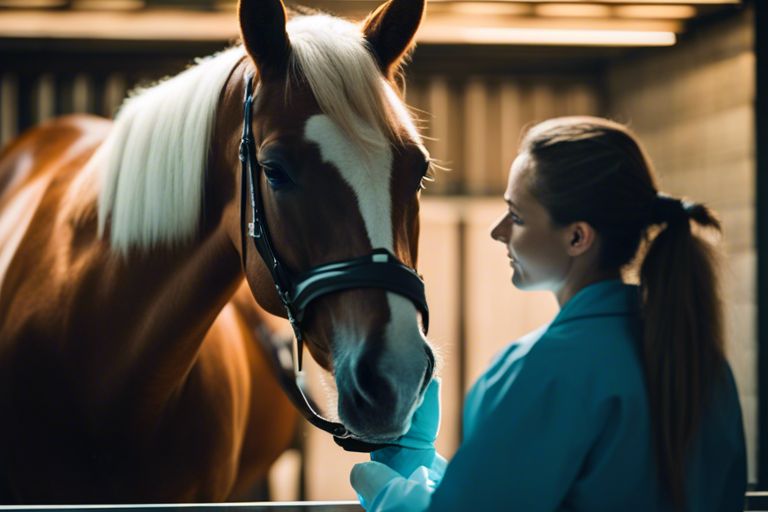
The Risks of Neglecting Regular Vet Check-Ups
Increased Risk of Illnesses
While regular vet check-ups may seem like just another task on your to-do list, their importance cannot be overstated. With routine examinations, your veterinarian can detect early signs of illness or disease that you may not notice. Horses, like any other living beings, are susceptible to various health issues that can develop silently and rapidly without proper monitoring. Neglecting these check-ups increases the risk of illnesses going unnoticed until they progress to a more critical stage.
Delayed Diagnosis and Treatment
Diagnosis delayed can be diagnosis denied when it comes to your horse’s health. With regular vet check-ups, potential issues can be identified and addressed promptly. Delaying these check-ups can lead to missed opportunities for early intervention, which may result in delayed diagnosis and treatment of conditions that could have been more easily managed if detected sooner.
Check-ups are not just about getting a clean bill of health. They are imperative for detecting underlying health conditions that may not exhibit obvious symptoms. Bear in mind, early detection is key to successful treatment and can make a significant difference in your horse’s prognosis.
Decreased Quality of Life
Illnesses left undiagnosed and untreated due to neglected vet check-ups can significantly impact your horse’s quality of life. These untreated conditions can progress, causing discomfort, pain, and potentially irreversible damage to your horse’s health. A compromised quality of life can also affect your ability to enjoy activities with your horse and may lead to emotional distress for both of you.
The Benefits of Regular Vet Check-Ups
Early Detection of Health Issues
The importance of regular vet check-ups for your horse cannot be overstated. Assuming you schedule these appointments as recommended by your vet, you are ensuring early detection of any potential health issues. The sooner a problem is identified, the better the chances of successful treatment. Your vet will be able to conduct thorough examinations and run necessary tests that may uncover concerns that are not yet showing visible symptoms.
Prevention of Serious Complications
Regular vet check-ups play a crucial role in the prevention of serious complications for your horse. By monitoring your horse’s health consistently, your vet can detect any deviations from normal health patterns and address them promptly. Understanding your horse’s baseline health status allows the vet to notice changes that may indicate underlying issues.
Think about it – catching a potential illness before it becomes severe can make all the difference in preventing unnecessary suffering for your horse. Conditions like colic or laminitis, if caught early, can often be managed effectively to avoid more serious consequences.
Improved Overall Health and Well-being
Regular vet check-ups contribute to the improved overall health and well-being of your horse. By staying on top of routine examinations and vaccinations, you are taking proactive steps to maintain your horse’s health. Complications such as dental issues, parasite infestations, or joint problems can be detected early and managed before they escalate into more significant concerns.
Plus, your vet can provide valuable guidance on nutrition, exercise, and general care practices that can enhance your horse’s quality of life. By investing in regular vet check-ups, you are prioritizing your horse’s health and setting the foundation for a long and happy life together.
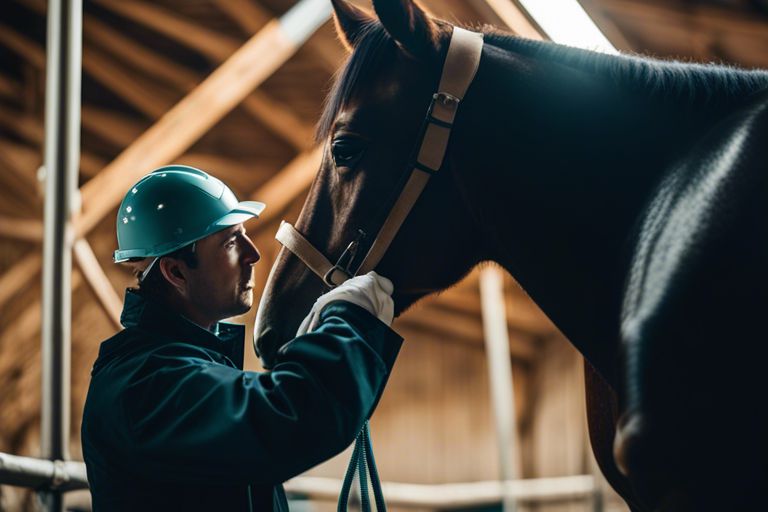
Common Health Issues in Horses
Your horse’s health is of utmost importance, and regular veterinary check-ups can help catch any health issues early. Here are some common health issues to be aware of:
Dental Problems
Problems with your horse’s teeth can lead to difficulty eating, weight loss, and behavioral issues. Regular dental check-ups are crucial to prevent issues such as sharp points, uneven wear, or dental infections. Your vet may recommend routine dental floating to ensure your horse’s teeth are properly aligned and free of any sharp edges.
Respiratory Issues
Health issues affecting your horse’s respiratory system can significantly impact their performance and overall well-being. Common respiratory problems include allergies, infections, and heaves (recurrent airway obstruction). Pay close attention to any signs of coughing, nasal discharge, or labored breathing in your horse. Respiratory issues can progress rapidly, so prompt veterinary care is important.
Respiratory problems can be exacerbated by poor ventilation in the barn, dusty hay, or proximity to traffic fumes. Providing a clean and well-ventilated environment for your horse can help reduce the risk of respiratory issues.
Parasite Infestations
Parasite infestations are a common concern for horse owners and can cause a range of health issues, including weight loss, colic, and decreased performance. Regular deworming and fecal egg counts are important to prevent parasite buildup in your horse’s system. Your vet can recommend a deworming schedule tailored to your horse’s specific needs.
Issues with parasites can be easily managed with proper veterinary guidance and regular monitoring. By staying proactive with parasite control, you can help ensure your horse remains healthy and parasite-free.
Signs and Symptoms to Look Out For
Many signs and symptoms can indicate that your horse may be in need of a vet check-up.
Changes in Appetite or Water Intake
If you notice a sudden decrease or increase in your horse’s appetite or water intake, it could be a sign of an underlying health issue. Changes in eating or drinking habits can be indicative of dental problems, digestive issues, or even systemic illnesses. It’s important to monitor your horse’s eating and drinking patterns regularly to catch any changes early.
Lethargy or Depression
Any unusual lethargy or signs of depression in your horse should not be ignored. If your horse seems uninterested in activities they normally enjoy, it could be a red flag for an underlying health problem. **Lethargy** can be a symptom of various issues, including pain, infections, or metabolic disorders. If you notice your horse behaving differently than usual, it’s crucial to have them evaluated by a veterinarian promptly.
Signs indicating potential health issues in your horse should never be taken lightly.
Changes in Stool or Urine Output
One indicator of your horse’s health is their stool and urine output. **One** potential red flag is a sudden change in frequency, consistency, or color of your horse’s stool or urine. Any significant deviation from normal patterns could be a sign of gastrointestinal upset, dehydration, or other health concerns. Monitoring your horse’s waste output can provide valuable insights into their well-being.
The wellbeing of your horse is closely tied to their overall health and happiness. Regular vet check-ups and staying vigilant for any signs of distress can help ensure your horse’s wellbeing and catch any potential issues early.
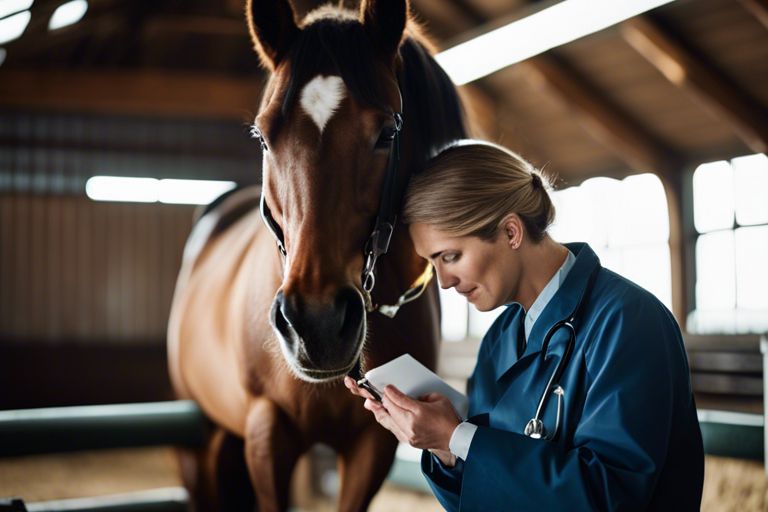
How Often Should Horses Have Vet Check-Ups?
Foals and Young Horses
All foals and young horses require frequent vet check-ups during their first year of life. **Regular vet check-ups** are crucial to ensure **their growth and development** are on track. **Foals should receive vaccinations** and be monitored for any signs of illness or developmental issues. **You should schedule vet visits** every 4-6 weeks for the first few months, and then adjust the frequency based on your vet’s recommendations.
Adult Horses
For adult horses, **annual vet check-ups are recommended** to **monitor their overall health**. During these visits, **your vet will perform a thorough physical exam** and may recommend additional tests or vaccinations based on your horse’s lifestyle and needs. **Regular dental checks** are also necessary to ensure **proper dental health** and **prevent any issues that may affect feeding or performance**.
Have a **baseline bloodwork** done at least annually to **detect any underlying health conditions early**. If your horse participates in competitions or is a senior horse, **more frequent check-ups may be necessary** to address any specific health concerns.
Senior Horses
**Any horse over the age of 15 is considered a senior horse** and should have **bi-annual or quarterly vet check-ups**. **Senior horses are more prone to health issues** such as arthritis, dental problems, weight management, and metabolic issues. **Regular vet visits** can help **manage these conditions** effectively and **ensure your horse enjoys a comfortable and healthy senior years**.
A **comprehensive geriatric exam** is necessary for senior horses to **monitor their overall well-being** and **address any age-related health concerns promptly**.
What to Expect During a Vet Check-Up
Physical Examination
An vital aspect of a vet check-up is the physical examination of your horse. Your vet will carefully observe your horse’s body condition, including weight, muscle tone, coat condition, and overall appearance. They will also check for any signs of lameness, wounds, or abnormalities in the horse’s movement. By conducting a thorough physical examination, the vet can identify any potential health issues early on and recommend appropriate treatment.
Laboratory Tests and Diagnostics
With technological advancements in veterinary medicine, laboratory tests and diagnostics play a crucial role in assessing your horse’s health. These tests may include blood work, fecal analysis, X-rays, ultrasounds, and more. By analyzing these diagnostic tests, the vet can gain valuable insights into your horse’s internal health, detect any underlying conditions, and create a tailored treatment plan.
CheckUp
Vaccinations and Preventative Care
Vaccinations are a vital component of preventative care for horses. Regular vaccinations can protect your horse against serious and potentially life-threatening diseases such as tetanus, influenza, rabies, and more. Your vet will recommend a vaccination schedule based on your horse’s age, lifestyle, and risk factors. By staying up to date on vaccinations, you can help ensure your horse’s long-term health and well-being.
Expect
Conclusion
So, remember that regular vet check-ups are crucial for maintaining your horse’s health and well-being. Just like humans, horses need preventive care to catch and treat any potential issues early. By scheduling regular appointments with your veterinarian, you can ensure that your horse is in top condition and address any concerns before they become serious problems.
Don’t wait for your horse to show symptoms of illness; be proactive and take the necessary steps to keep them healthy. Your veterinarian can provide valuable advice on nutrition, vaccinations, dental care, and overall wellness to help your horse live a happy and comfortable life. Investing in regular vet check-ups shows your commitment to your horse’s health and can ultimately lead to a stronger bond between you and your equine companion.
Q: Why are regular vet check-ups important for horses?
A: Regular vet check-ups are important for horses because they help ensure early detection and treatment of any health issues, preventing them from becoming more serious and costly to treat.
Q: How often should I schedule a vet check-up for my horse?
A: It is recommended to schedule a vet check-up for your horse at least once a year, but more frequent check-ups may be necessary depending on your horse’s age, health status, and any ongoing health concerns.
Q: What does a vet check-up for a horse typically involve?
A: A vet check-up for a horse typically involves a physical examination, dental check, vaccinations, deworming, and discussing any concerns or changes in your horse’s behavior or health.
Q: How can regular vet check-ups help prevent diseases in horses?
A: Regular vet check-ups can help prevent diseases in horses by ensuring they are up to date on vaccinations, deworming, and screening tests for common equine diseases.
Q: What are the benefits of regular vet check-ups for horses?
A: The benefits of regular vet check-ups for horses include early detection and treatment of health issues, improved overall health and well-being, and a longer lifespan for your horse.
